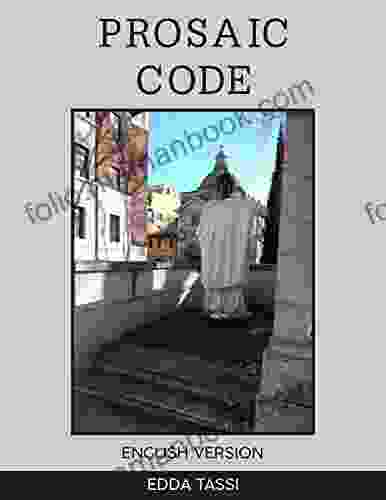Delving into the Prosaic Poetry of Charles Bukowski: A Literary Examination

Charles Bukowski, the self-proclaimed "dirty old man" of American literature, left an indelible mark on the literary landscape with his raw and unflinchingly honest poetry. Among his vast body of work, his prosaic verse stands out as a unique and compelling expression of his disillusioned worldview and lived experiences.
4.6 out of 5
| Language | : | English |
| File size | : | 2203 KB |
| Text-to-Speech | : | Enabled |
| Screen Reader | : | Supported |
| Enhanced typesetting | : | Enabled |
| Print length | : | 156 pages |
| Paperback | : | 144 pages |
| Item Weight | : | 6.4 ounces |
| Dimensions | : | 5.85 x 0.36 x 8.27 inches |
Prosaic poetry, as the name suggests, blurs the lines between poetry and prose. It lacks the traditional structure and rhyme schemes of formal poetry, instead adopting a conversational and often fragmented style. Bukowski's prosaic poems are characterized by their short lines, sparse language, and deliberate simplicity.
The Marginalized Voice
One of the defining features of Bukowski's prosaic poetry is its focus on marginalized voices. His poems give voice to the downtrodden, the forgotten, and the outcasts of society.
- Bukowski's subjects are often the working-class denizens of Los Angeles, whose lives are marked by poverty, addiction, and despair.
- He writes about the alcoholics, the gamblers, the prostitutes, and the misfits who populate the fringes of society.
- Through their stories, Bukowski reveals the hidden pain and vulnerability that lies beneath the surface of everyday life.
Bukowski's own life experiences played a profound role in shaping his writing. Born in Germany in 1920, he grew up in a dysfunctional family in Los Angeles. His father was an abusive alcoholic, and his mother struggled to make ends meet.
Bukowski's childhood left him with deep scars that would later manifest in his writing. He dropped out of high school and spent years drifting through a series of dead-end jobs. He battled alcoholism for much of his life, and his experiences with addiction and poverty became central themes in his poetry.
The Prosaic Style
Bukowski's prosaic style is both an aesthetic choice and a reflection of his worldview. He believed that poetry should be accessible to everyone, not just to the elite or the educated. His poems are written in a straightforward and unadorned language that is easy to understand.
- Bukowski's lines are often short and staccato, creating a sense of urgency and immediacy.
- He uses simple words and avoids flowery language, preferring to focus on the raw emotions and experiences of his subjects.
- The lack of traditional structure allows Bukowski to freely explore his thoughts and emotions, moving from one idea to the next with ease.
Despite its simplicity, Bukowski's prosaic style is remarkably effective in conveying the depth and complexity of human experience. His poems are full of vivid imagery, dark humor, and a surprising tenderness that belies his tough exterior.
Themes of Struggle and Redemption
Throughout his prosaic poetry, Bukowski explores the themes of struggle and redemption. His characters are often confronted with poverty, addiction, and despair, but they also possess a resilience and a longing for redemption.
- Bukowski's poems capture the raw pain of human suffering, but they also offer a glimmer of hope.
- His characters may be flawed and down on their luck, but they never give up on the possibility of change.
- Through their struggles, they learn important lessons about life and themselves, and they discover the strength within them to keep fighting.
Bukowski's poetry is a testament to the human spirit's ability to endure and overcome adversity. His characters may not always find redemption, but they never stop searching.
Charles Bukowski's prosaic poetry is a powerful and unflinchingly honest exploration of the human condition. Through his raw and unadorned language, he gives voice to the marginalized and reveals the hidden pain and vulnerability that lies beneath the surface of everyday life.
Bukowski's poems are not for the faint of heart, but they are a necessary and important read for anyone who wants to understand the complexities of the human experience. His writing serves as a reminder that even in the darkest of times, there is always hope for redemption.
"So you go on living even if all your bones are broken because you have to go on living."
- Charles Bukowski, "So You Want to Be a Writer?"
4.6 out of 5
| Language | : | English |
| File size | : | 2203 KB |
| Text-to-Speech | : | Enabled |
| Screen Reader | : | Supported |
| Enhanced typesetting | : | Enabled |
| Print length | : | 156 pages |
| Paperback | : | 144 pages |
| Item Weight | : | 6.4 ounces |
| Dimensions | : | 5.85 x 0.36 x 8.27 inches |
Do you want to contribute by writing guest posts on this blog?
Please contact us and send us a resume of previous articles that you have written.
 Top Book
Top Book Novel
Novel Fiction
Fiction Nonfiction
Nonfiction Literature
Literature Paperback
Paperback Hardcover
Hardcover E-book
E-book Audiobook
Audiobook Bestseller
Bestseller Classic
Classic Mystery
Mystery Thriller
Thriller Romance
Romance Fantasy
Fantasy Science Fiction
Science Fiction Biography
Biography Memoir
Memoir Autobiography
Autobiography Poetry
Poetry Drama
Drama Historical Fiction
Historical Fiction Self-help
Self-help Young Adult
Young Adult Childrens Books
Childrens Books Graphic Novel
Graphic Novel Anthology
Anthology Series
Series Encyclopedia
Encyclopedia Reference
Reference Guidebook
Guidebook Textbook
Textbook Workbook
Workbook Journal
Journal Diary
Diary Manuscript
Manuscript Folio
Folio Pulp Fiction
Pulp Fiction Short Stories
Short Stories Fairy Tales
Fairy Tales Fables
Fables Mythology
Mythology Philosophy
Philosophy Religion
Religion Spirituality
Spirituality Essays
Essays Critique
Critique Commentary
Commentary Glossary
Glossary Bibliography
Bibliography Index
Index Table of Contents
Table of Contents Preface
Preface Introduction
Introduction Foreword
Foreword Afterword
Afterword Appendices
Appendices Annotations
Annotations Footnotes
Footnotes Epilogue
Epilogue Prologue
Prologue Tim Severin
Tim Severin John Kim
John Kim Kristina Turner
Kristina Turner Christian Mayer
Christian Mayer James Kerr
James Kerr Leah Maye
Leah Maye Francis Fukuyama
Francis Fukuyama Charles Bukowski
Charles Bukowski Jesse Q Sutanto
Jesse Q Sutanto Tom Clancy
Tom Clancy Phil Hall
Phil Hall Ryozo Himino
Ryozo Himino Victoria Waller
Victoria Waller David J Vaughan
David J Vaughan Rajat Acharyya
Rajat Acharyya Steven Towns
Steven Towns Allison Brennan
Allison Brennan Esther Crain
Esther Crain Subhash Chandra
Subhash Chandra Thankgod Adoyi Ocheme
Thankgod Adoyi Ocheme
Light bulbAdvertise smarter! Our strategic ad space ensures maximum exposure. Reserve your spot today!
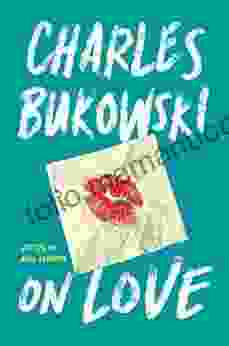
 Jake CarterOn Love: A Deep Dive into the Turbulent World of Charles Bukowski's Romantic...
Jake CarterOn Love: A Deep Dive into the Turbulent World of Charles Bukowski's Romantic...
 Allen GinsbergLanguage-Focused Approach: A Comprehensive Strategy for Fostering Deeper...
Allen GinsbergLanguage-Focused Approach: A Comprehensive Strategy for Fostering Deeper... Tennessee WilliamsFollow ·17.9k
Tennessee WilliamsFollow ·17.9k James HayesFollow ·16.9k
James HayesFollow ·16.9k Jarrett BlairFollow ·16k
Jarrett BlairFollow ·16k Osamu DazaiFollow ·14.9k
Osamu DazaiFollow ·14.9k Evan SimmonsFollow ·15.9k
Evan SimmonsFollow ·15.9k Patrick HayesFollow ·14.8k
Patrick HayesFollow ·14.8k Christian CarterFollow ·3.7k
Christian CarterFollow ·3.7k Elton HayesFollow ·10.1k
Elton HayesFollow ·10.1k
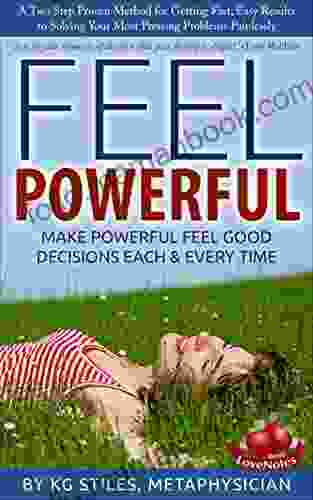
 Dean Cox
Dean CoxHow to Make Decisions Easily & Effortlessly: The...
The Different Types of Decisions There...
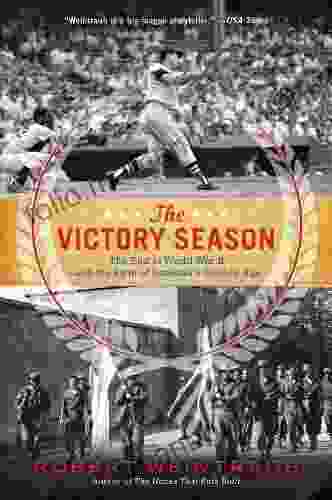
 Gustavo Cox
Gustavo CoxThe End of World War II and the Birth of Baseball's...
The end of...

 Patrick Rothfuss
Patrick RothfussThe Dantes: An 11-Family Saga of Billionaires, Soulmates,...
The Dantes is an epic family saga that follows...
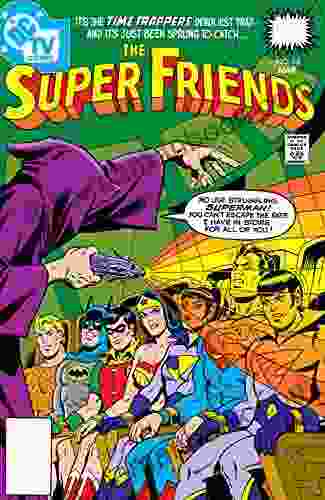
 Dylan Mitchell
Dylan MitchellSuper Friends: The Animated Adventures That Defined a...
In the vibrant landscape of American...

 Jamal Blair
Jamal BlairCollege For Students With Disabilities: We Do Belong
College can be a...
4.6 out of 5
| Language | : | English |
| File size | : | 2203 KB |
| Text-to-Speech | : | Enabled |
| Screen Reader | : | Supported |
| Enhanced typesetting | : | Enabled |
| Print length | : | 156 pages |
| Paperback | : | 144 pages |
| Item Weight | : | 6.4 ounces |
| Dimensions | : | 5.85 x 0.36 x 8.27 inches |


